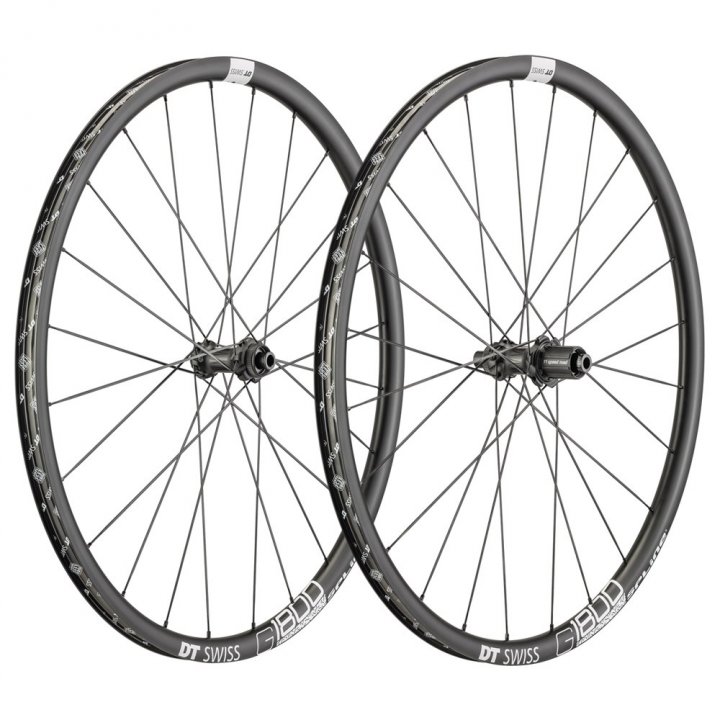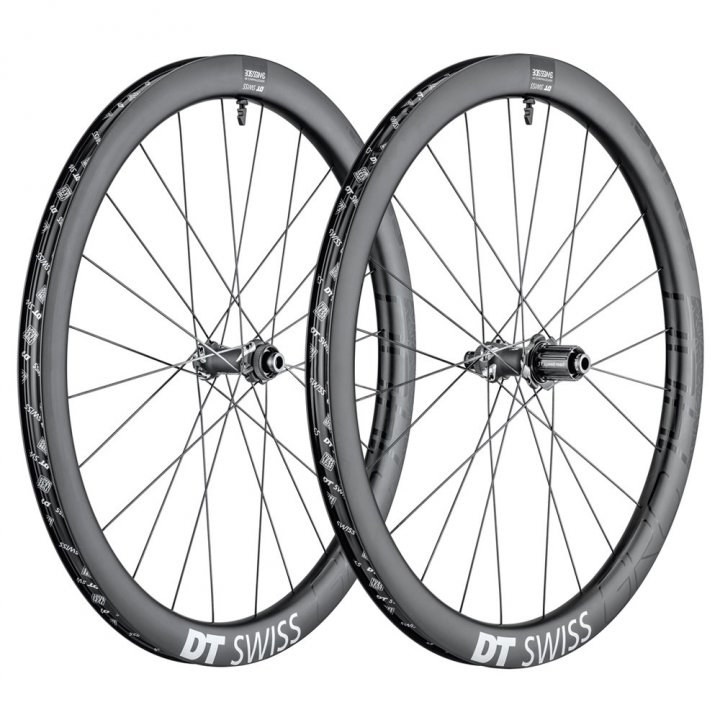Carbon vs Aluminum Gravel Bike Wheels

Personally, I have aluminum wheels on my gravel bike, because I often ride it on rough single track and need the durability of aluminum. Making the choice between Carbon vs Aluminum Gravel Bike Wheels is based on a number of factors. I hope this post helps you with your decision.
Gravel biking, with its unique demands of versatility, durability, and performance, brings into sharp focus the choice of wheel material. Here’s a deep dive into the world of carbon and aluminum gravel bike wheels, helping you navigate through the choices.
Weight and Acceleration
- Carbon: Typically lighter, providing quicker acceleration and easier climbing. The weight savings can be a significant advantage on longer rides and steeper terrains.
- Aluminum: Generally heavier, but modern aluminum wheels have significantly closed the gap.
Durability and Toughness
- Carbon: High-end carbon wheels can be surprisingly durable and handle rough gravel roads well. However, a severe impact could cause damage or cracks.
- Aluminum: Known for its resilience. Even if it gets dented or scratched, an aluminum wheel is likely to keep rolling, which is a huge plus when you’re miles away from help.
Ride Comfort and Vibration Damping
- Carbon: Can be engineered to flex at specific points, providing good vibration damping and a smoother ride over bumpy terrains.
- Aluminum: Naturally more compliant, offering a plush and forgiving ride, which can be an advantage on long gravel rides.
Price and Value for Money
- Carbon: More expensive. The performance gains need to be worth the additional cost for the rider.
- Aluminum: More budget-friendly, offering a strong performance-to-cost ratio.
Maintenance and Repairability
- Carbon: Requires careful inspection after impacts. Damaged carbon can sometimes be repaired, but it’s often expensive.
- Aluminum: Easier to assess for damage and more likely to be repairable, which is a significant factor for riders who venture into remote areas.
Aesthetics and Customization
- Carbon: Often seen as more premium, with sleek designs and a clear coat that showcases the carbon weave.
- Aluminum: More traditional look, but there are plenty of modern designs and customization options available.
Environmental and Sustainability Considerations
- Carbon: The production of carbon fiber is energy-intensive, and the material is not easily recyclable.
- Aluminum: Highly recyclable, though the mining and initial production of aluminum are also energy-intensive.
Tubeless Setup
- Both materials generally offer excellent compatibility with tubeless tire setups, which are popular in gravel biking for their ability to run lower tire pressures and reduce the risk of punctures.
Conclusion
Choosing between carbon and aluminum wheels for gravel biking depends on your priorities and budget. If you’re after the lightest setup possible and crave every performance advantage, carbon might be the way to go. However, if you value durability, repairability, and overall value, aluminum offers a compelling case, especially for the rough and unpredictable world of gravel riding. Ultimately, both materials have proven themselves on gravel roads, and you can’t go wrong with either choice—it’s all about what matters most to you on the ride.
Have Fun!!! John
Click here to find the best gravel bike wheels rated and ranked
List of the Top Mountain Bike Wheel Manufacturers
FAQ’s
Are carbon wheels worth it for gravel bikes?
Whether carbon wheels are “worth it” for gravel bikes depends on a combination of rider priorities, the specific terrains encountered, and budget considerations. Let’s break down the key points to help you determine if they’re the right choice for you:
Pros of Carbon Wheels for Gravel Bikes:
- Weight: Carbon wheels are typically lighter than their aluminum counterparts. This means quicker accelerations, easier climbing, and potentially less rider fatigue over long distances.
- Stiffness & Responsiveness: Carbon offers a stiff and responsive ride, which can translate into a more precise handling experience. This can be especially beneficial when navigating tricky gravel descents or when cornering at high speeds.
- Customized Ride Feel: Carbon manufacturing allows for specific flex patterns, which can offer vibration damping on rough surfaces, potentially providing a smoother ride.
- Aesthetics: Many riders appreciate the sleek, modern look of carbon wheels, and there’s a certain prestige associated with them.
Cons of Carbon Wheels for Gravel Bikes:
- Cost: One of the most significant deterrents for many riders is the high cost of carbon wheels. They can be considerably more expensive than aluminum wheels.
- Durability: While carbon wheels can be very strong, they might not handle direct impacts (like rock strikes) as well as aluminum. If compromised, carbon can crack, whereas aluminum might just dent.
- Repairability: In remote areas, if something goes awry, aluminum can sometimes be temporarily “bent back” into a ridable shape. Carbon doesn’t offer this kind of field-serviceability.
- Environmental Concerns: The production of carbon fiber is more energy-intensive than aluminum, and it’s not as easily recyclable.
Factors to Consider:
- Riding Style: If you’re frequently tackling rough, rocky terrains or paths laden with potential hazards, the durability of aluminum might be preferable. However, if you’re racing or always seeking performance gains, carbon might be the better choice.
- Budget: Consider if the benefits of carbon align with its price tag for you. For some, the performance gains justify the cost; for others, the difference might not be discernible enough to warrant the extra expense.
- Long-term vs. Short-term: Think about your long-term cycling goals. If you plan to upgrade or change bikes frequently, investing in high-end wheels might not be a priority. Conversely, if you’re building a dream bike for the long haul, carbon wheels might be part of that vision.
Conclusion:
Carbon wheels for gravel bikes offer tangible benefits, but they come at a premium. They’re “worth it” for riders seeking every performance advantage and who value the unique characteristics of carbon. However, for many gravel enthusiasts, especially those who prioritize durability, versatility, and value-for-money, aluminum wheels remain a compelling choice. Always consider your personal riding style, terrain preferences, and budget when making the decision.
What are the advantages of carbon wheels on gravel bike?
Carbon wheels on gravel bikes come with a variety of advantages tailored to the specific demands of gravel riding. Here are the main benefits:
- Weight Savings: Carbon wheels are typically lighter than aluminum counterparts. A lighter wheel results in less rotational weight, allowing for quicker acceleration, easier climbing, and a more nimble overall feel.
- Stiffness & Responsiveness: Carbon wheels offer excellent stiffness, translating to a more responsive ride. This means better power transfer when pedaling and more precise handling, especially beneficial on variable gravel terrains.
- Vibration Damping: One of the unique attributes of carbon is its ability to be engineered with specific flex patterns. This can provide better vibration damping on rough gravel roads, reducing rider fatigue and offering a smoother experience compared to more rigid wheel materials.
- Aerodynamic Efficiency: Many high-end carbon gravel wheels are designed with aerodynamics in mind. While aero advantages are often associated with road cycling, they can also benefit gravel riders, especially on flatter terrains or when riding at higher speeds.
- Durability: Contrary to some perceptions, modern high-quality carbon wheels can be very durable. Manufacturers have invested significantly in developing carbon layups that withstand the rigors of off-road use.
- Tubeless Compatibility: While both carbon and aluminum wheels can be tubeless-ready, many carbon gravel wheels are optimized for this setup. Going tubeless allows riders to run lower tire pressures for better traction and comfort without the risk of pinch flats.
- Aesthetics and Prestige: Many riders appreciate the sleek, modern appearance of carbon wheels. Additionally, there’s a certain prestige or “cool factor” associated with having carbon hoops.
- Customizability: Carbon manufacturing processes allow for diverse rim profiles and designs. This means there are many specific carbon wheel options tailored to different types of gravel riding, from ultra-wide profiles for more significant tire volume to narrower options for faster rolling.
- Heat Management: For those using disc brakes (common in gravel bikes), carbon rims handle heat well, ensuring consistent braking performance even on long descents.
Conclusion:
Carbon wheels provide a blend of performance, comfort, and aesthetic advantages for gravel riders. While they come at a premium price, for those seeking to optimize their gravel setup, the benefits can make a tangible difference in ride quality and enjoyment.
Do carbon gravel wheels make a difference?
Absolutely, carbon gravel wheels can make a difference in several aspects of riding, but whether that difference is meaningful or justifiable in terms of cost is subjective and depends on the rider’s goals, priorities, and budget. Here’s how carbon gravel wheels can impact the riding experience:
- Weight: Carbon wheels are generally lighter than their aluminum counterparts. This reduced rotational weight can lead to quicker accelerations and potentially more responsive handling.
- Stiffness & Responsiveness: Carbon wheels offer a stiffer platform, translating to better power transfer and a more responsive feel. This can be advantageous when navigating variable gravel terrains, allowing for precise adjustments and accelerations.
- Vibration Damping: Carbon’s ability to dampen vibrations is one of its standout qualities for gravel riding. On rough, chattery roads, carbon wheels can provide a smoother ride, reducing hand, arm, and posterior fatigue.
- Aerodynamics: Some carbon wheels are designed with aerodynamics in mind. Even in gravel riding, where aerodynamics might seem secondary, maintaining speed on flatter sections can be easier with aerodynamically optimized wheels.
- Durability: Modern carbon wheels, especially those designed for off-road and gravel use, are impressively durable. They can handle the stresses and impacts of gravel roads quite well, though they might still be more prone to catastrophic damage from sharp impacts compared to aluminum.
- Tubeless Integration: While both carbon and aluminum wheels offer tubeless options, many carbon wheels are designed from the ground up for seamless tubeless integration. This can lead to better tire bead retention and fewer issues with setup.
- Aesthetics: On a more subjective note, many riders appreciate the look of carbon wheels, and there’s no denying they add a touch of class and modernity to a bike’s appearance.
- Braking Performance: For those using disc brakes, carbon rims can offer consistent braking performance, especially in wet conditions. However, it’s essential to use brake pads compatible with carbon rims to ensure effectiveness and prevent rim damage.
However, it’s essential to note:
- Diminishing Returns: The differences between high-quality aluminum wheels and carbon wheels have narrowed over the years. While carbon wheels do offer advantages, the performance gap isn’t as pronounced as it once was.
- Cost Consideration: Carbon wheels come at a premium. The rider must decide if the performance and aesthetic benefits justify the increased cost.
Conclusion:
Carbon gravel wheels do make a difference in both tangible performance metrics and rider experience. Whether that difference is worth the investment is a personal decision. For competitive riders, enthusiasts, or those looking for the best ride quality, carbon might be the way to go. For others, especially those on a tighter budget or prioritizing durability over peak performance, high-quality aluminum wheels are still a very viable choice.






